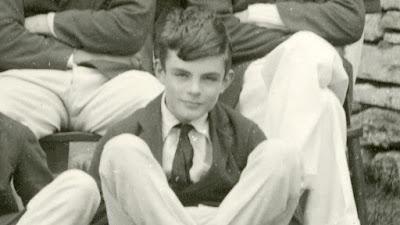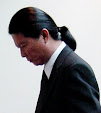Happy Wesak, aka Buddha Jayanti, Buddha Purnima and Buddha Day.

The Buddha's birth, enlightenment, and death are all said to have occured on the full moon of Vesakha (the ancient Indian month corresponding to April/May).
The all-in-one celebration reflects profound Buddhist teachings:
1. Symbolic Unity:
• Birth, enlightenment, and death represent the cycle of samsara and liberation. Together they embody the Buddha's entire spiritual journey.
2. Interdependence:
• These events are inseperable:
• Birth --> Potential for awakening
• Enlightenment --> Fulfilment of that potential
• Death --> Final release from rebirth.
3. Practical Devotion:
• Celebrating all three on one day simplifies observance and emphasizes their equal importance.
The Proto Scientist
Siddharta Gautama - The Buddha didn't leave his home and his family to start a religion. He left a very luxurious life to find a way to end suffering. His own suffering.
Even though he was the Prince of the Sakyamuni clan who led a palatial life surrounded by servants, and creature comforts, he found life to be unsatisfactory to the extent of being unbearable that he left behind everything in the middle of the night to lead an ascetic's life in search of liberation from suffering at age 29.
It wasn't after 6 years of even more pain and suffering that he finally found the middle path to liberation.
From an overly rich life, he wandered down the austerity route to deny his body basic sustenance, even subjecting his body to extreme physical pain, torture and self-immolation. He learned from several different gurus, yogis, sadhus and ascetics that one must experience acute pain in order to feel alive in the moment. He sat and slept on the streets, in the forest, on a bed of nails, starved himself eating only grains of rice until he lost so much weight that his backbone could be felt from his stomach. It was at this point of his life that he realised he had gone too far to the extremes in search of liberation. After taking a bowl of rice milk from a female cowherd, he sat down under a bodhi tree in meditation charting a new path and vowed to find liberation that very night. It was said that Mara and his demons were tormenting him throughout the night but in the end he emerged enlightened at dawn.
He found Nirvana through his methods of thorough investigation of the mind to end suffering.
His methods or dhamma are encapsulated into;
1. The Four Noble Truths and
2. The Eight-fold Noble Path.
This dhamma has been in practice by millions since 600 BCE.
In recognition of his dhamma, today scholars, scientists and philosophers recognise Buddha as a Pioneering Cognitive Scientist, in the following fields;
• Mindfulness & Neuroplasticity :
The Buddha's teaching on meditation align with modern neuroscience. Studies show that mindfulness meditation physically rewires the brain, increasing grey matter in the prefrontal cortex (focus and emotional regulation) and shrinking the amygdala (fear and stress).
• The Four Noble Truths & Psychology :
His insights into suffering (dukkha) and it's causes mirrors cognitive-behavioral therapy (CBT), which teaches that suffering arises from maladaptive thought patterns.
• Dependant Origination & Systems Theory :
His concept of interconnected causality ("this arises, that becomes") resembles modern systems theory in biology and ecology, emphasizing how everything exists in a web of cause-and-effect.
Here's a Scientific Reintepretation of Buddhism's Core Themes :
Prominent scientists, philosophers, and scholars have acknowledged the Buddha's insights as remarkably prescient of modern psychology, neuroscience, and philosophy.
1. Albert Einstein
The religion of the future will be a cosmic religion. It should transcend personal God and avoid dogma and theology. Covering both the natural and the spiritual, it should be based on a religious sense arising from the experience of all things natural and spiritual as a meaningful unity. Buddhism answers this description. If there is any religion that could cope with modern scientific needs it would be Buddhism.
2. Carl Sagan
"Buddhism is a kind of science of the mind, not a belief system."
3. Daniel Goleman (Psychologist, Author of 'Emotional Intelligence')
"The Buddha was the most advanced psychologist of his time - and perhaps of all time."
4. Sam Harris
"The Buddha was a scientist of the mind and his teachings are a kind of proto-psychology."
5. Robert Wright (Evolutionary Psychologist, Author of 'Why Buddhisn is True")
"The Buddha was the first to diagnose the human condition in a way that morern science is now confirming."
6. Jon Kabat-Zinn (Founder of Mindfulness Based Stress Reduction, MBSR)
"The Buddha was the original mindfulness teacher. His insights into suffering and the mind are now being validated by neuroscience."
7. Arthur Schopenhauer
"If I were to take the results of my philosophy as the standard of truth, I would have to concede to Buddhism the pre-eminence of all religions." (1851)
8. The Dalai Lama & Neuroscientists.
" Buddhism and science are not in conflict. In fact Buddhism is a kind of inner science."
The 14th Dalai Lama in discussions with neuroscientists incl. Richard Davidson.
9. Steven Pinker (Cognitive Scientist, Harvard)
"Buddhism comes closest to being a true psychology among the world's religions."
10. David Hume (Philosopher)
*On the illusion of the Self: Hume's "Bundle Theory" (no permanent self) closely mirrors the Buddha's *Anatta (no-self) dhamma.
In summary the Buddha, Siddharta or Sidh, is a kind of Proto Scientist recognised for;
• Anticipating cognitive science (mindfulness, perception, suffering)
• Rejecting dogmatism in favour of empirical observation.
• Influencing modern therapies (CBT, MBSR, positive psychology)
So why does it matter, how has the Buddha's scientific methods impacted mankind?
To find the answers, with the help of deepseek, (who has contributed in compiling the research) we dig deeper into a comparison of major scientific breakthroughs individually mapping out their discoveries, insights and impact:
1. The Buddha vs. Isaac Newton
- Buddha’s Insight: Dependent Origination (*Pratītyasamutpāda*) – All phenomena arise in interdependence; no event is isolated.
- Newton’s Discovery: Laws of Motion & Universal Gravitation – Physical systems operate via cause-and-effect.
- Impact Comparison:
- Buddha: Explains psychological/social causality (e.g., how craving leads to suffering).
- Newton: Explains physical causality (e.g., planetary motion, engineering).
- Winner for Humanity: Newton (enabled technology, space exploration), but Buddha’s model is crucial for **mental health**.
2. The Buddha vs. Charles Darwin
- Buddha’s Insight: Impermanence(*Anicca*) – All things change; no fixed "self."
- Darwin’s Discovery: Evolution by Natural Selection – Life adapts dynamically.
- Impact Comparison:
- Buddha: Helps humans **accept change** (reduces existential anxiety).
- Darwin: Explains biological diversity (foundation of genetics, medicine).
- Winner for Humanity: Darwin (revolutionized biology), but Buddha’s view aids *emotional resilience*.
3. The Buddha vs. Albert Einstein
- Buddha’s Insight: Non-Self (*Anatta*) – The "self" is a fluid construct.
- Einstein’s Discovery: Relativity – Reality is observer-dependent; no absolute frame.
- Impact Comparison:
- Buddha: Reduces ego-driven conflict (applied in therapy, mindfulness).
- Einstein: Enabled GPS, nuclear energy, cosmology.
- Winner for Humanity: Einstein (tech advancement), but Buddha’s insight is *critical for psychology*.
4. The Buddha vs. Sigmund Freud
- Buddha’s Insight: Subconscious Drives (e.g., *Taṇhā* – craving as root of suffering).
- Freud’s Discovery: The Unconscious Mind – Hidden desires shape behavior.
- Impact Comparison:
- Buddha: Offers *a path to liberation* via mindfulness (non-repressive).
- Freud: Founded *psychoanalysis* (but limited therapeutic success).
- Winner for Humanity: Buddha (more effective for mental well-being).
5. The Buddha vs. Carl Jung
- Buddha’s Insight: Collective Patterns (e.g., *Saṃsāra* – cyclical suffering).
- Jung’s Discovery: Collective Unconscious & Archetypes – Universal psychic structures.
- Impact Comparison:
- Buddha: Provides a way out (Nirvana = breaking cycles).
- Jung: Maps the mind but lacks practical liberation methods.
- Winner for Humanity: Buddha (more actionable).
6. The Buddha vs. Richard Dawkins
- Buddha’s Insight: Delusion (*Moha*) – Misperception of reality.
- Dawkins’ Work: Memetics & Atheism – Beliefs spread like viruses; critique of religion.
- Impact Comparison:
- Buddha: Non-theistic path to clarity (doesn’t require rejecting faith).
- Dawkins: Promotes skepticism but can be polarizing.
- Winner for Humanity: Buddha (more unifying approach).
7. The Buddha vs. Daniel Kahneman
- Buddha’s Insight: Cognitive Biases (e.g., *Māyā* – illusion distorting perception).
- Kahneman’s Work: Behavioral Economics – Humans irrationally predictably.
- Impact Comparison:
- Buddha: Meditation reduces bias (e.g., mindfulness in decision-making).
- Kahneman: Explains economic behavior (Nobel Prize-winning).
- Winner for Humanity: *Tie* (Buddha for inner change, Kahneman for societal systems).
8. The Buddha vs. Stephen Hawking
- Buddha’s Insight: Origin of the Universe (avoided metaphysical speculation).
- Hawking’s Work: Big Bang Theory & Black Holes.
- Impact Comparison:
- Buddha: Focused on **ending suffering**, not cosmology.
- Hawking: Advanced astrophysics.
- Winner for Humanity: Hawking (expanded cosmic knowledge).
9. The Buddha vs. Noam Chomsky
- Buddha’s Insight: Language as Construct (e.g., concepts distort reality).
- Chomsky’s Work: Linguistics & Cognitive Science – Innate grammar structures.
- Impact Comparison:
- Buddha: Warned against linguistic attachment (e.g., "self" as a label).
- Chomsky: Explained how language shapes thought.
- Winner for Humanity: Chomsky (scientific rigor), but Buddha’s view aids *detachment*.
10. The Buddha vs. Modern AI Researchers (e.g., Geoffrey Hinton)
- Buddha’s Insight: Mind as a Process (no permanent "thinker").
- AI’s Discovery: Neural Networks – Self-learning, emergent intelligence.
- Impact Comparison:
- Buddha: Deconstructs the "self" (useful for AI ethics).
- AI: Transforms industries (healthcare, automation).
- Winner for Humanity: AI (practical utility), but Buddha’s model prevents **AI dystopias**.
Conclusion
• Buddha wins in psychology & ethics - His 'science of the mind' remains unmatched for inner peace.
• Traditional scientists win in material progress - Physics, biology and tech drive external advancement.
• Synergy is key: Buddha's insights compliments hard science by addressing human suffering amid progress.
Having addressed and validated the scientific method and credentials for Siddharta the Buddha, let's now quickly explore the gist or essence of Buddha's dhamma.
Apart from the aforementioned Four Noble Truths and the Eight-fold Noble Path, there has been numerous suttas (Pali) or sutras (sanskrit) written and documented about the buddha's teachings or dhammas.
The beauty of the Buddha's teachings is in it's simplicity - It is possible to sample and understand the Buddha's teachings in one verse and there are many such verses found in the suttas. Some of such verses did not originate from the tatagatha himself but other Buddhas or Bodhisattvas who have come before or after. In fact the Buddha didn't write anything on the subject but was instead quoted and transcribed by his disciples and followers during his several discourses throughout his life as a teacher roaming the coutryside.
Here is one known as Buddha's universal advice:
"Avoid unwholesome deeds, do good, purify the mind. "
~ Siddharta Gautama Buddha (Dhammapada 183)
Let me break it down for you. Since the Buddha's single-minded objective is to end human suffering, he focussed on the mind and body. The mind is a part of the body.
Avoid Unwholesome Deeds - What are unwholesome thoughts and deeds? There are many to list, however we shall just cluster them to three root unwholesome thoughts/deeds:
1. Lobha - Greed/Craving
• Attachment to pleasure, posessions, or ego. DN22 (Mahasatipattana Sutta*)
2. Dosa - Hatred/Aversion
• Anger, ill-will, resentment. MN19 (Dhevhavitakka Sutta*)
3. Moha - Delusion/Ignorance
• Misperception of reality, confusion. AN3.67*
Doing good is an irrefutable universal truth but contains a three-fold 'Do Good' framework:
1. Bodily Good
• Abstain from killing, stealing, sexual misconduct. Eg. Protecting life, offering help.
2. Verbal Good
• Abstain from lying, divisive speech, harsh words, idle chatter (gossip) Eg. Truthful, kind and reconciling speech.
3. Mental Good
• Cultivate non-greed, non-hatred, right view. Eg. Loving kindness, compassion.
A. Remove Mental Defilements
Purify The Mind
• The mind precedes all mental states (DP 1-2)
• Purification starts by recognising suffering arises from impure thoughts.
• The mind is hard to restrain... but a tamed mind brings happiness.
Method: Mindfulness to observe and let go of unwholesome thoughts.
B. Cultivate the Opposite Qualities
• Replace defilements with:
• Greed --> Generosity
• Hatred --> Loving-kindness
• Delusion --> Wisdom
C. Meditation for Purification
• Through meditation wisdom arises, without meditation wisdom wanes.
D. Develop Insight (Vipassana )
• All conditioned things are impermanent...
• Seeing the Three Marks of Existence (impermanence, suffering, non-self) purifies the mind at the deepest level.
If all the above sounds like rocket science, that's because it is science. The science and study of the mind produced by the Buddha through his personal experience over 6 years of suffering to finally end suffering through skillful means. By skillful means, a term very much used in the suttas, which means the clever or intelligent use of our mind, resources or intentions. The suttas or lessons outlined in the Buddha's teachings are not law, or commandments, they are methods or a path towards a practice to achieve liberation.
So to apply skillful means to interpret any of Buddha's teachings is not a sin. For to deal with matters or science of the mind, one has to be able to exercise one's intelligence to interpret the message of the verses or sayings without having to memorize or abide by them word for word. As long as the essence of his teachings are received and understood, the dhamma will lead to the end of suffering.
Let's take a more simplified skillful interpretation of the Buddha's universal advice;
"Avoid unwholesome deeds, do good, purify the mind."
Could be skillfully translated as: "Do no harm, be kind to everyone and sit in quiet contemplation." Such is the simplicity and accessibility of the Buddha's teachings.
This is but just one of the Buddha's dhamma. The simplicity of the dhamma facilitates easy understanding by all strata of society.
Understanding is just the beginning of the journey to end suffering, the true application of the dhamma is in the practice of the dhamma. Only then can the Buddha's teachings be known as an experiential practice available to all. It is not a doctrine or a belief system for devotees to abide by or believe in but to simply put into practice every moment of everyday. The result of which is almost instantaneous for the moment or the day. Through consistent practice, the path will lead us to the end of suffering. Nirvana.
I would like to end my short dissertation* by drawing attention to the results of the final rankings in comparing the proto-scientist Buddha's insights with those of later scientists, assessing their impact on human well-being, knowledge and societal progress.
Beginning with Newton's discovery of the laws of motion and universal gravition where physical systems operate via cause-and-effect, Buddha's insight named Dependent Origination (*Pratityasamupada*) where all phenomena arise in interdependence; no event is isolated.
From Darwin's Discovery of Evolution by Natural Selection- Life adapts dynamically, to Buddha's Insight on Impermanence (*Anicca)-All things change; no fixed 'self'.
While Einstein's discovery of relativity- reality is observer-dependant, no absolute frame, Buddha has this insight of non-self (*Anatta) - The 'self' is a fluid construct.
In his field of analytical psychology, Carl Jung's discovery of the collective unconscious and archetypes- Universal psychic structures. The Buddha's insight is collective patterns eg. Samsara - cyclical suffering.
In the field of Modern AI researchers, Geoffrey Hinton's neural networks are self-learning and emergent intelligence. Buddha's insight is mind as a process (no permanent thinker).
In the final analysis, while traditional scientists win in material progress - physics, biology and tech-driven external advancements, Buddha wins in psychology and ethics - his science of the mind remains unmatched for inner peace. Buddha's insights compliment hard science by addressing human suffering amid progress. *according to deepseek.
In my view, while humanity pursue external advancement and hard science, humans are living on the verge of self-annihilation. Depression, mental illness, and suicide are plaguing our young at unprecedented rates of increase. While the arms race threaten the planet, another race of even higher stakes is currently fought on the AI stage for glory yet unfathomable and untold.
It seems that while 'so-called' elite thinkers like our academicians, professors, scientists, politicians, technocrats, bureaucrats, plutocrats, even kleptocrats and everyone in between spend time and resources pondering external conquests in the material sciences, little or no attention is paid to the science of the mind. This should be the first frontier of enquiry because as the Buddha said around 2,650 years ago:
"The mind precedes all mental states."
*dissertation- if I may be so bold as to call it so, I would like to have the audacity to try.






_etc_wartime_contemporary_photo_U-boat_photos._(12).jpg)














